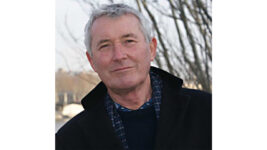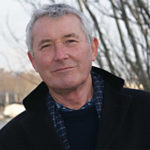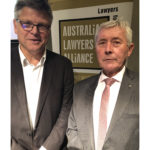Lawyer Secretly Prosecuted for Exposing Crimes of Australian Government

A decision in the ACT Supreme Court today (which was also a closed hearing) means that part of the trial of Former ACT Attorney-General Bernard Collaery will take place in secret.
Mr Collaery and his former client, Witness K, a former senior Australian intelligence officer, are charged with revealing that the Australian government engaged in the crime of bugging Timor Leste’s government building in 2004 to dishonestly obtain a financial advantage in crucial oil and gas negotiations.
In a High Court hearing on 26 June 2020, Justice David Mossop upheld the national security certificate issued by Attorney-General Christian Porter to keep the trial hidden.
Both the prosecution and decision to keep the trial secret from the public raise serious concerns about the state of Australia’s democracy – both in terms of accountability and transparency – with it effectively being a crime to expose the criminal activities of our government and then hiding the prosecution of those who allegedly exposed the crimes, from the public.
National Security Laws
Mr Collaery and Witness K were both charged under National Security laws and their prosecution is guided by the National Security Information Act.
That act sets out a process that begins with the Federal Attorney-General deciding whether a certificate needs to be issued to protect any classified evidence contained in the brief of evidence that may be of national security importance.
In Mr Collaery’s case a certificate was issued.
At this point, the defendant and the prosecutors are expected to come to an agreement on the matters that will remain classified throughout the trial. In the event they cannot agree, under the law, a court must make the decision, in a special hearing.
Mr Collaery’s lawyers argued that material the government was trying to keep secret was not actually of national security significance.
Closed trial
The decision has been marked with controversy, because the National Security Information Act stipulates who can be present at the closed hearing, and it requires the court to give the greatest weight to the opinion of the Attorney-General about what is of national security importance. In other words, the odds are pretty well stacked in the Government’s favour.
Although many cases, aside from those which involve matters relating to national security are conducted closed pre-trial hearings (sometimes to protect victims of sex crimes for example, or to protect witnesses or undercover police), the government has been particularly sensitive about keeping this case under wraps as much as possible.
It’s been reported that at one point Justice Mossop had to issue a ruling to protect his court staff from inadvertently breaching national security laws that could expose them to jail terms.
And the Attorney-General’s legal team was organising the collection of phones from members of the public and journalists outside the court, until Justice Mossop overruled it.
In recent times, the Act has been criticised for being used to silence whistleblowers, as well as the journalists who help them expose government secrets. Under the legislation current or former Commonwealth officers can be imprisoned for up to 7 years for communicating information that harms the nation’s interests, or for a maximum of 10 years for an aggravated offence.
Mr Collaery’s supporters believe that he was acting in the public interest, exposing immoral behaviour by the Australian government, but that’s not a significant defence.
$2 million of taxpayer dollars
The government has vigorously pursued both Mr Collaery and his client Witness K, Australian Secret Intelligence Service officer, a former with the prosecution so far costing more than $2 million and the trial yet to begin.
Mr Collaery, has been charged with conspiracy to breach the Intelligence Act while acting for Witness K, despite, at the time being an ‘approved lawyer’ for members of the intelligence services.








